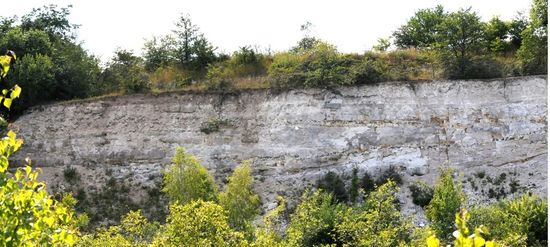Difference between revisions of "Content"
m (→Modeling contaminant transport in limestone) |
m |
||
| Line 19: | Line 19: | ||
[[ Model concepts | Model types for flow and transport in fractured aquifers ]] | [[ Model concepts | Model types for flow and transport in fractured aquifers ]] | ||
| + | |||
| + | [[ Model output | Model output: What do we get out of the different models? ]] | ||
[[ Modeling tools | Modeling tools]] | [[ Modeling tools | Modeling tools]] | ||
| Line 25: | Line 27: | ||
[[ Field data and model calibration | Model calibration with field data ]] | [[ Field data and model calibration | Model calibration with field data ]] | ||
| − | |||
| − | |||
[[ Recommendations | Recommendations for modeling fractured limestone aquifers]] | [[ Recommendations | Recommendations for modeling fractured limestone aquifers]] | ||
Revision as of 14:57, 23 January 2017
Investigation of contaminant transport in fractured limestone aquifers
Authors: Klaus Mosthaf, Mette Martina Broholm, Poul Løgstrup Bjerg, Philip John Binning (DTU Environment )
This is part of a collaboration project between DTU Environment and the Capital Region of Denmark
Introduction and processes in limestone
Physical processes and properties of limestone
Data acquisition and conceptual model development
Data acquisition and field methods
Development of a conceptual model for a limestone site (based on example: Akacievej, Hedehusene)
Modeling contaminant transport in limestone
Model types for flow and transport in fractured aquifers
Model output: What do we get out of the different models?
Setup of an advanced model for fracture flow and transport in a limestone aquifer
Model calibration with field data
Recommendations for modeling fractured limestone aquifers

